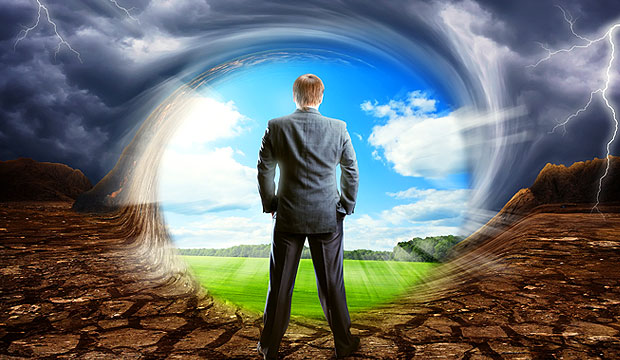
What makes the difference between hard and soft science fiction is that hard science fiction is based on science, while soft is, let's just say, far more imaginative. To be honest, I enjoy both types, and the soft stuff is a ton easier to write. Those pesky physical rules don't get in the way, and you don't have to do research.
The story takes place several decades in the future, and it revolves around the idea of quantum foam and teleportation. It points out why teleportation never may be practical, but it brings up the idea of human 3D printing, which could be used more effectively for space exploration.
However, it also would have a massive number of other uses, both good and bad, which got me thinking about what else could change our future in a massive way. I came up with a list of five potentially world-changing technologies.
Technology 1: Organic Printing
We can use 3D printers for plastics, ceramics, metals and some blends, but our efforts even to print food have been more in line with automated icing machines for cakes than printing food.
If we could print food affordably using nonperishable components, it would mean not only that we would be better able to address the massive amount of global hunger that exists, but also that we potentially could cut the cost of food manufacturing and eliminate most food-borne illnesses.
There is an amazing amount of activity in this area, suggesting that by 2030 we actually might have something like the Star Trek replicator in our homes.
Given that this same technology likely could manufacture drugs and better prosthetics, this single step could have a massive impact on how we live -- far beyond the way we eat.
Technology 2: Advanced Bio-engineering
A division of Google is releasing millions of bio-engineered mosquitoes to eliminate those that carry sicknesses. Granted, I do remember that many apocalyptic movies start this way.
The ability to manufacture insects that can address certain problems could have a massive impact, good and bad, on our environment. The bad would come from a mistake, or if someone decided to create militarized mosquitoes.
In the world of The Punch Escrow, there are mosquitoes that have been engineered to eat pollutants in the air and pee H20 -- and characters have to dodge constant pee drenchings from the mosquitoes.
Still, bio-engineered life forms could offset much of the damage we've done to the world -- addressing global warming as well as land, sea and air pollution -- and go places that people currently are unable to go.
Technology 3: AI Salting
Artificial intelligence salting is another concept author Klein introduces as a major plot element in The Punch Escrow. AI salting isn't meal preparation, for when we humans eat AI's (boy, talk about a concept that could start a Terminator event) it means a specialized technician teaches an AI to think more like a human.
Basically, it is individual AI deep learning of human behaviors. The underlying concept, making computers think more like humans, is critical to make them more effective at interacting with humans and interfacing with us more effectively.
If we really can't tell the difference between an AI and a human, or if an AI handling a human-related task could be made to be empathetic, the improvement in the interaction and the effectiveness of the AI would be improved vastly.
However, few are focused on the human part, and the challenge to train AIs to be more human-like could change forever the way we interact with and use them. At the very least, it would be a huge step in creating robots indistinguishable from humans and making the Westworld experience real.
Technology 4: Ultracapacitor Batteries
As Elon Musk repeatedly has said, batteries suck. Ultracapacitors can be charged and discharged almost instantly. They don't have the level of temperature problems that batteries currently exhibit. They are much lighter, which increases efficiency in things like cars, and their life cycle is vastly longer than current batteries.
The problem is, they don't do a good job of storing energy for any length of time. Some recent promising news from the scientific community suggests we may be close to sorting this out.
Batteries that could charge instantly and produce far more energy without problems would be a huge step toward making off-grid home power and electric-powered cars far more convenient.
Technology 5: Wireless Power
Ever since Nikola Tesla started talking about being able to broadcast power, it has been a known game-changer. Granted, Tesla may have gotten his ideas from aliens, but if you don't need batteries, then electric cars, planes, trains and personal electronics become smaller and far more reliable.
Qualcomm is working on a technology called "Halo", initially to charge electric cars without having to plug them in. However, its vision includes putting this technology in roads so that you'd never have to charge your car again, it would charge while you were driving.
Rather than replacing a gas pump with a far slower charging station, you would just get rid of it. While not as good as true broadcast power, technology like this could work in cars, planes and offices, and we would never have to worry about charging our personal stuff or cars ever again.
A similar technology from WiTricity is being used to develop wireless charging for all our devices and currently being built into Dell's laptop charging docks.


